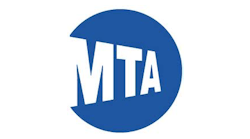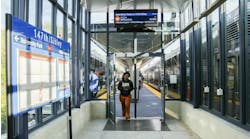Metropolitan Transportation Authority to Launch New Smart Battery Pilot Program
The pilot is being funded by the New York State Energy Research and Development Authority and supports Governor Andrew M. Cuomo’s energy storage target of 1,500 megawatts by 2025, as well as his Reforming the Energy Vision initiative, a strategy to build a clean, resilient and affordable energy system for all New Yorkers. The launch of the pilot represents the culmination of several years of concept development and came about thanks to close collaboration between officials at NYSERDA, the MTA and New York City Transit, including the Department of Subway Operations.
“Rising energy costs necessitate a smarter approach from large transportation entities like ours. They require us to constantly be looking for outside-of-the-box solutions,” said MTA President Pat Foye. “This pilot puts the MTA and New York City Transit in the vanguard of tackling our energy challenges in a way that benefits both our customers and the environment more broadly. The need to identify more energy efficient ways of operating will only increase in the future and the Smart Battery technology presents a real blueprint for how we can achieve progress.”
Alicia Barton, president and CEO, NYSERDA said, “Advancing innovative energy solutions throughout the transportation sector is critical to reducing the state’s overall carbon footprint, lowering energy costs, and achieving Governor Cuomo’s ambitious clean energy and climate goals. Utilizing this Smart Battery technology will help move the public transportation system into a new, energy efficient era that will benefit all New Yorkers.”
“Today’s announcement is tremendously exciting,” said Frank Jezycki, the executive vice president and COO for the Department of Subways. “A value stack approach that includes harvesting regenerative braking energy is a cutting-edge way of powering our system more efficiently, while at the same time reducing peak load on the Con Edison distribution system.”
Smart Battery is a wayside energy management system that has the capability to store and return braking energy. Currently, when a train brakes, most of the regenerative braking energy is not used and is instead dissipated as heat through the third rail resistors. With the ENVILINE Energy Storage System, supplied by ABB (Smart Battery), this energy can be saved and strategically released during peak consumption hours when the electricity from the grid is most expensive and demand on the Con Edison distribution system is at its highest.
The battery is operated by Viridity’s VPower DR program control module, a proprietary software package that is fully integrated with wholesale power markets and is utilizing best in class peak shaving algorithms. Peak shaving will allow not just the ability to achieve savings with regards to energy costs, but also the ability to generate revenue through participating in demand response programs. These are programs that actually compensate customers for reducing their energy consumption during peak hours. Practically speaking, this means that New York City Transit could eventually achieve significant cost savings by using less energy from the grid during peak hours than it currently does.


